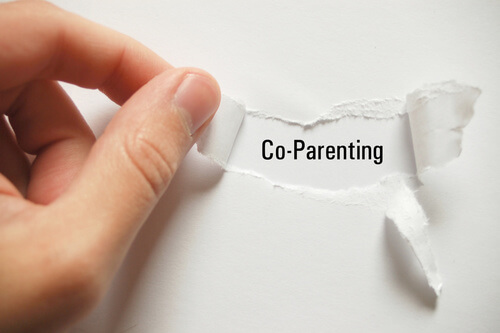 Divorce may be the end of a marriage, but when children are involved, it is the beginning of co-parenting. That means parents still have to work together and raise their children. It also means that they need to put their differences aside and do what’s best for their children.
Divorce may be the end of a marriage, but when children are involved, it is the beginning of co-parenting. That means parents still have to work together and raise their children. It also means that they need to put their differences aside and do what’s best for their children.
Benefits of co-parenting
After a divorce or separation where there has been no evidence of domestic abuse, substance abuse or criminal behavior, parents are increasingly opting to co-parent their children. Co-parenting means that divorced or separated parents, or those not living in the same household work together to raise their children rather than delegate that responsibility to only one party. It is not only becoming increasingly common, but there is every indication that when approached seriously and in good faith, it can work.
At least one study by Linda Nielsen of the Institute for Family Studies indicates that children in shared-parenting families have better outcomes than children in sole physical custody families. “The measures of well-being included: academic achievement, emotional health (anxiety, depression, self-esteem, life satisfaction), behavioral problems (delinquency, school misbehavior, bullying, drugs, alcohol, smoking), physical health and stress-related illnesses, and relationships with parents, stepparents, and grandparents,” said Nielsen.
Despite the availability of online templates for creating co-parenting plans, a cookie-cutter approach may not be the best idea. I always tell my clients that it’s their family, so while it helps to see what the “norm is,” it is not necessarily what’s best for you.
“There are numerous formats and templates for developing a co-parenting plan, but the key to successful co-parenting is to focus on the needs of the children, particularly their need to maintain routine relationships with each parent and to be shielded from ongoing parental conflict,” said Edward Kruk Ph.D. in Psychology Today. “There is no one ‘best’ co-parenting plan that families should adopt and follow, as much depends on the unique circumstances and specific needs of family members.”
Creating a co-parenting plan
A knowledgeable family law attorney can help you create and customize a detailed co-parenting plan that will serve as a reminder to both parents what is expected of them. The benefits of creating a co-parenting plan during the divorce process:
- allow both parents to provide input and feel empowered;
- set up communication protocol between the parents. Ideally it should be by means that avoids misunderstandings or confusion. That’s why confirmation of plans and details shared by email make the most sense;
- can include legal consequences if one parent doesn’t adhere the co-parenting plan;
- although flexibility is important, it should provide an established visitation schedule so both parents (and their children) have stability and consistency; and
- decrease potential tension between parents and children because the general daily decisions are established.
A co-parenting plan can be tailored to a family’s specific needs and may include:
- the amount of time children will spend with each parent;
- school, holiday and vacation scheduling details;
- children’s extra-curricular activities;
- how both major and minor decisions about the children, including medical care, will be made;
- how the parents will communicate about their children; and
- how disputes between parents will be resolved.
The plan may also include provisions about what parents must do if they cannot reach mutual decisions. Mediation is an option and, when all else fails, courts may intervene.
Will co-parenting work for me?
Recognizing that co-parenting is beneficial to children is not the same as making it successful said Sam Margulies Ph.D., Esq., in Psychology Today. “For co-parenting to work couples have to proceed through the divorce without the destructive adversarial struggle that characterizes so much of conventional divorce. If you want to succeed at co-parenting, the ‘co’ has to mean cooperation from the beginning.”
Co-parenting is possible under the following custody arrangements:
- Shared physical custody—Both parents share their time with their children, generally an equal amount of time. Both parents have legal rights and responsibilities and can make major decisions that affect the children.
- Physical custody (one parent)—The parent who lives with the child more than 50 percent of the time is deemed to have “primary physical custody” and is referred to as the “custodial parent,” but the non-custodial parent generally has substantial parental time and the ability to make mutual decisions regarding the well-being of the children.
- Joint legal custody—Both parents share physical custody of the children and have equal roles in making decisions, provided that they can work together. Equal authority also means that each parent has veto power over the decisions of the other parent. A parent who has joint legal custody could be found in contempt of court, or even lose their right to have a say in the future, if he or she makes major decisions about a child’s well-being without consulting the other parent.
Co-parenting is often not applicable in situations where one parent has “legal” or “sole” custody, because the court granted only one parent the legal authority to make major decisions about the children (educational, religious or medical decisions, for example).
If you are considering a divorce and want to do what’s in the best interest of your children, it is advisable to seek the guidance of a knowledgeable family and matrimonial attorney who can help you customize a co-parenting plan that best works for your family.






